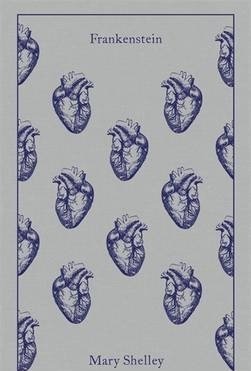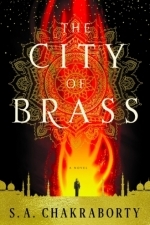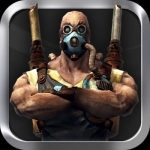
Tempo Advance - Metronome
Music and Utilities
App
Approved and used by Mike Mangini (Dream Theater, Drummer of the Year*), Tempo Advance is the...
Sass Perilla (36 KP) rated Frankenstein in Books
Aug 9, 2019
My hatred for and frustration with the self-pitying, feckless behaviour of the (pseudo)
protagonist made this an irritating read for me- and to an extent I think this was Shelley’s intention. Victor isn’t designed to be the likable, affable, morally “good” man fallen from grace he believes himself to be, and the horrific events that befall those around him are of his making.
However, this doesn’t make him any less grating! The "monster" (to me reminiscent of Caliban with his lyrical speech and enforced isolation, being neither man nor not man) is eloquent and persuasive when he asks his creator to account for his misdoings. So, you’ve got to ask yourself, if an infanticidal, demonic, bag of sew together corpses is actually more engaging than the main storyteller, is that storyteller really the
right character to be telling the story?
Now, with all that said, it is an important book. A work by a female author with strong female characters (albeit background characters) who was only nineteen when she wrote the initial draft. Very impressive. But, for me her youth is evident. When we teach secondary school pupils to write creatively, we often give them the ambiguous instruction “show don’t tell”, and for me the book is more of a list of horrible and horrific events told in a Chinese puzzle box style story within a story, rather than an engaging and “complete” narrative. It feels like she chooses to place focus on the wrong “bits”- for example the whole of chapter nineteen where Victor travels the British Isles, comments briefly on the local architecture of each town and city and
then repetitively reminds us that he couldn’t enjoy the surroundings because of his angst.
And I would have at least like to have seen some of the courtroom drama when Victor is tried for the death of Clerval...
So, I hate to be “that” gal, who poo-poos these fantastic works of fiction (we know they’re great because some clever-britches told us they were) but in all honesty, the novel ain’t that good, and I’ll maintain that stance no matter how clever the britches of the opposing schools of thought.
I think the continuing appeal is in it’s universal themes: parenting, nature versus
nurture; morality and scientific advancement- and the whole idea of stitching a creature out of
corpse-parts and electrocuting it to life is pretty darn cool. And there are some really effective
horror scenes, such as the vignette of Victor ripping apart project lady-monster (I kind wish she had a name- a working title- but given he can’t even be bothered to name monster number one I guess this was all too much to hope for).
It’s readable, but it’s value, for me at any rate, lies in the offshoots and creativity it has spawned, rather than the work itself.

Red Sea Geothermal Provinces
D. Chandrasekharam, Aref Lashin, Nassir Al Arifi and Abdulaziz M Al-Bassam
Book
"Today, over two billion people in developing countries live without any electricity. They lead...
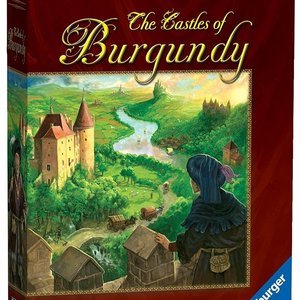
The Castles of Burgundy
Tabletop Game
The game is set in the Burgundy region of High Medieval France. Each player takes on the role of an...
Boardgames FeldGames
Goddess in the Stacks (553 KP) rated The City of Brass: Daevabad Trilogy in Books
Mar 25, 2018
So the book has been touted as an "own voices" novel, seemingly much to the author's chagrin. She is Muslim, but she's a white convert (Chakraborty is her married name). She has striven to correct the misconception about her ethnicity when she finds it, tweeting about it and talking about it in interviews. (This interview is a good example.) Because the book is pure fantasy, in a fantasy realm after the first few chapters, I'm not too worried about it not actually being written by a middle-eastern author. She does note in the interview I linked that she's not qualified to write some stories because of her ethnicity, and I appreciate that recognition of privilege. As far as I can tell, (as a white person myself) she did justice to the bits of mythology that she included. (Given the reception by people who were so excited about it being an Own Voices book, I think I'm probably right.) Her twitter (@SChakrabs) is FULL of links to minority authors and retweets about their books. I am very impressed by the level of her advocacy for minority authors.
So that aside, I LOVED THIS BOOK. I almost always enjoy fantasy inspired by non-western mythology: Children of Blood and Bone was fantastic, and though Forest of a Thousand Lanterns had a western fairytale at its heart, being reimagined through an Asian lense was really neat to read. The Bear and The Nightingale and The Girl in the Tower were Russian inspired, as were The Crown's Game/The Crown's Fate. I really do try to pick up non-western inspired fantasy when I can. City of Brass scratched that itch perfectly.
City of Brass opens in Cairo, where our heroine, Nahri, is a con-woman with small healing magics. When a ritual goes awry, she's thrust into the world of the djinn. It's when Nahri and her accidental bodyguard, Dara, arrive at the Djinns' city of Daevabad that the story really gets started.
I'm still a little confused about the difference between djinn and Daeva; Daeva seem to be one of the tribes but also the name for the entire race, and some of them get offended at being called djinn but some of them don't? I'm not really sure about that distinction. There is a clear line between djinn and Ifrit, though - Ifrit are immensely powerful, immortal beings who refused to subject themselves to punishment many centuries ago. I'm not sure I actually see a downside to being Ifrit, other than the djinn all think they're evil. The Ifrit, however, are out to get Nahri, and Dara's not having any of THAT.
I love Dara - he's a fascinating character, with a violent, mysterious backstory. I'm very eager to read more about him and figure out exactly what's up with his background. Nahri is also awesome - a little arrogant, but by the end of the book she's starting to learn she might need help from those around her. Unfortunately, also by the end of the book she doesn't know who to trust. The naive djinn prince, Ali, is the third main character of the book, and while I can see him having an interesting story, his personality is still a little flat. Hopefully the second book will see advancement in all three of these characters' personalities.
And I can't WAIT for the second book! City of Brass didn't exactly end on a cliffhanger, but it did leave many questions unanswered and our main characters' fates uncertain. Unfortunately, I can't find any information on the sequel, just that it's being edited. No release date or title yet.
Read this book. It's fantastic.
You can find all my reviews at http://goddessinthestacks.wordpress.com
Hazel (1853 KP) rated Blood, Ink & Fire in Books
Dec 14, 2018
Imagine a world without books… In this dystopian novel by Ashley Mansour, that is exactly what the world is like. <i>Blood, Ink & Fire</i> is set in the future where not only are books non-existent, it is illegal to know how to read. Noelle Hartley has grown up in the United Vales of Fell, where a computer controls what she hears, sees and feels by showing her a constant stream of artificial images. But, Noelle knows she is different. Unlike her parents she is able to question the meanings of the pictures, and when a rebellious group hacks into the system, forcing words onto their screens, Noelle is able to read them.
With the help of her blind friend, John, Noelle and her grandfather escape from this controlling society and find people living on the outside who are against what Fell is doing to humanity. Noelle learns facts about her grandfather’s past that she could never have imagined as well as discovering secrets about herself. Noelle is a reader and is told by members of the past generations that it is not true that all the books were destroyed. There are nine volumes hidden in various locations, which when brought together will become the key to unlock the knowledge that has been banned for so long. It is Noelle’s job to find them.
It is scary how plausible this post-literacy world is. Mansour includes three quotes before the beginning of the novel from the years 1987, 2008 and 2014 that put forward fears that books and our ability to read is becoming less important with the advancement of the internet. Humanity is becoming less intelligent and more controlled by what they see on their computers. Brains do not need to think as much as the answers are all online. Even whilst reading the narrative, there are aspects that are frighteningly familiar. The idea of a continuous stream of images is similar to current social medias such as Tumblr and Pinterest, where users feel compelled to scroll through the entire feed to view all of the latest posts.
There is however a part of this novel that is entirely fiction and would be impossible to ever occur. One of the characters is a bit of an enigma, a piece of the past inhabiting a human body. Literacy personified. This causes the storyline to be less credible, thus readers will view this as a piece of fiction (which it is) and be less likely to take the warning about the Internet changing people’s brains to heart.
<i>Blood, Ink & Fire</i> is a really fascinating story that is exciting from start to finish. It is full of clever ideas, making it unique from other books in this genre. It is also evident that Mansour undertook a vast amount of research, particularly of Shakespeare’s plays, as there was a reference to the playwright and his work in nearly every chapter, from character names to plots. Those familiar with Shakespeare will benefit from these allusions as they make the narrative flow effectively from beginning to end. It is, however, possible to read and enjoy without any prior knowledge of Shakespeare – you may even learn something new from reading this book.
I highly recommend <i>Blood, Ink & Fire</i> to book lovers and dystopian fiction fans. It feels similar in style to <i>The Darkest Minds</i> trilogy by Alexander Bracken, and with series such as <i>The Hunger Games</i> and <i>Divergent</i> being brought to the big screen, this new young adult book is bound to be popular. This was Ashley Mansour’s debut novel and I am keen to discover what she will write next.
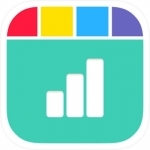
My Budget Book
Finance and Business
App
A housekeeping book cannot be easier. The surface is kept simple on purpose and provides all...

My Money 2017 HD
Finance and Productivity
App
An accounts book should be clear and easy to use, otherwise you quickly grow tired of using it and...

My Money 2017
Finance and Productivity
App
An accounts book should be clear and easy to use, otherwise you quickly grow tired of using it and...
